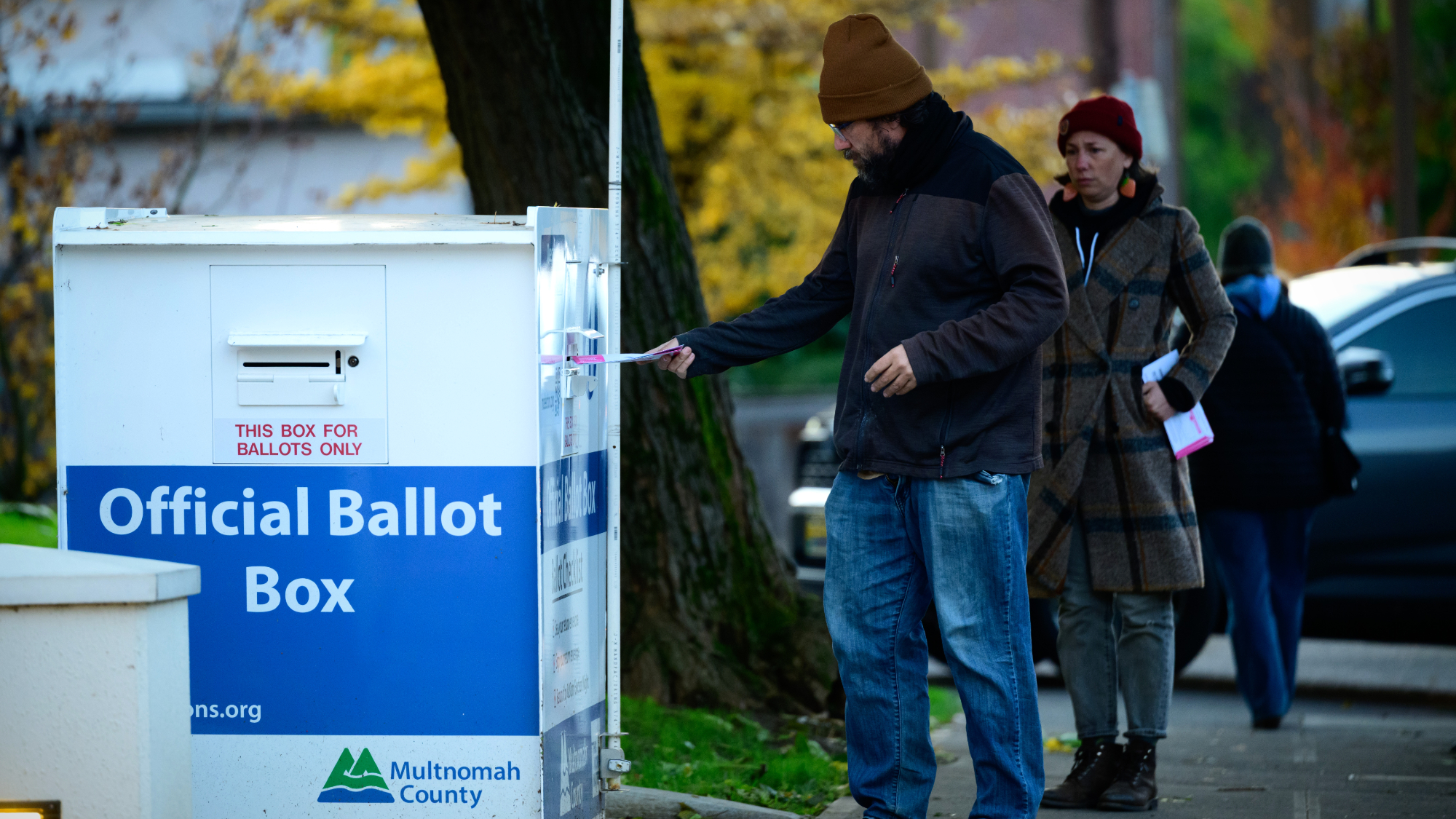6 international responses to the NSA surveillance program
Americans aren't the only ones being spied on

Newly released evidence of the NSA's widespread surveillance program has caused plenty of debate within the United States, although perhaps not enough to change any of the Obama adminstration's actual policies. The documents whistleblower Edward Snowden released to The Guardian and The Washington Post has caused outrage among privacy activists both in the United States and in countries around the world, many of whom are concerned that the NSA's invasive policies have affected their own citizens. Here, 6 reactions from around the world:
1. China
Artist Ai Weiwei, who has been harassed and arrested thanks to China's surveillance state, argued in The Guardian that the country he called home in the 1980s and early '90s has strayed from its ideals:
The Week
Escape your echo chamber. Get the facts behind the news, plus analysis from multiple perspectives.

Sign up for The Week's Free Newsletters
From our morning news briefing to a weekly Good News Newsletter, get the best of The Week delivered directly to your inbox.
From our morning news briefing to a weekly Good News Newsletter, get the best of The Week delivered directly to your inbox.
I lived in the United States for 12 years. This abuse of state power goes totally against my understanding of what it means to be a civilized society, and it will be shocking for me if American citizens allow this to continue. The U.S. has a great tradition of individualism and privacy and has long been a center for free thinking and creativity as a result.
In the Soviet Union before, in China today, and even in the US, officials always think what they do is necessary, and firmly believe they do what is best for the state and the people. But the lesson that people should learn from history is the need to limit state power. [The Guardian]
2. Germany
Daniel Ellsberg, the man who leaked the Pentagon Papers in 1971, recently called the NSA the "United Stasi of America" — a reference to East Germany's secret police force before the fall of the Berlin Wall.
Justice Minister Sabine Leutheusser-Schnarrenberger noted that after World War II, Germany looked to the United States as an example of a free country:
We should remember that the strength of the liberal constitutional state lies in the trust of its citizens. Constitutional guarantees protect this trust and pursue two objectives: to punish the guilty and to protect the innocent or those who are unjustly suspected of a crime against wrongful actions by the government. These are precisely the tenets Germany adopted in 1949 from the tradition of the American Constitution of 1776 — namely that in a free and open democratic process, it is important to avoid the impression that the protection of basic rights is not being taken seriously enough.
The suspicion of excessive surveillance of communication is so alarming that it cannot be ignored. For that reason, openness and clarification by the US administration itself should be paramount at this point. All facts must be put on the table. [Der Spiegel]
German Chancellor Angela Merkel has said she will discuss the privacy concerns of German citizens with President Obama when he arrives in Berlin on June 18, shortly before the 50th anniversary John F. Kennedy's "Ich bin ein Berliner" speech.
A free daily email with the biggest news stories of the day – and the best features from TheWeek.com
3. Belgium
The NSA scandal made the front page of Belgian paper De Standaard:

4. Switzerland
In Switzerland, where the Obama administration has been trying to make banks give up information on U.S. customers, many officials expressed bitterness towards the United States.
"There is little to nothing that we can do about it because even Swiss people give consent to hand over their data to U.S. companies," Swiss data protection commissioner Hanspeter Thür told the Tages Anzeiger newspaper. "People should be aware that once they have signed the terms and conditions their personal data will end up in the U.S."
Some Swiss citizens are also mad about an incident described by Snowden involving CIA agents setting up a drunk driving arrest in order to recruit a Swiss banker.
"What is really very serious is that [U.S.] agents are active on foreign territory, and violate the laws of the country where they are," Dick Marty, a former member of Swiss parliament, said on Swiss public radio. "This is not the first time they have done this, and I must say that they have been spoiled by the Swiss. For too long Switzerland has tolerated CIA agents doing more or less whatever they wanted on our territory."
5. Canada
"There is no border. The way telecommunication traffic is routed in North America, the fact of the matter is about 90 percent of Canadian traffic — no one really knows the exact number — is routed through the United States," Ronald Deibert, director of the University of Toronto's Citizen Lab, told The Toronto Star.
That has Canadian citizens concerned, including Globe and Mail columnist Ivor Tossell:
Canadians can in no way pretend to be above this. We very nearly let privacy-weakening legislation of our own pass without protest last year, until Public Safety Minister Vic Toews pronounced that critics were siding with child pornographers, which nobody seemed to like. We have our very own shadowy intelligence agency – the Communication Security Establishment Canada, or CSEC, whose first line of defence is that hardly anyone has heard of it. CSEC has a broad and vaguely defined mandate, and very little public oversight, that leaves privacy-minded observers worried. [Globe and Mail]
Ann Cavoukian, privacy commissioner for Ontario, was similarly distraught: "We have to just assume that all of our information is accessible. It just doesn't pass the smell test… It's inescapable, how inappropriate this is."
6. United Kingdom
British citizens have used the NSA revelations to question the powers of one of their own intelligence agencies, the Government Communications Headquarters (GCHQ). Foreign Secretary William Hague has tried to quell fears that GCHQ and NSA are sharing information on Britons:
It has been suggested GCHQ uses our partnership with the United States to get around U.K. law, obtaining information that they cannot legally obtain in the U.K. I wish to be absolutely clear that this accusation is baseless. Any data obtained by us from the U.S. involving U.K. nationals is subject to proper U.K. statutory controls and safeguards. [The Guardian]
While U.K. officials can't monitor the internet communications of its own citizens without ministerial approval, plenty of internet companies popular in Britain are based in the United States, which critics say has created a gray zone.
"It is not the breaking of laws that is most troubling in this area, but the absence of them," lawyer Matthew Ryder told The Guardian. "Foreigners storing their personal data on U.S. servers have neither the protection that their own domestic laws would give them from their own governments, nor the protection that U.S. citizens have from the U.S. government."
Keith Wagstaff is a staff writer at TheWeek.com covering politics and current events. He has previously written for such publications as TIME, Details, VICE, and the Village Voice.
-
 Political cartoons for January 27
Political cartoons for January 27Cartoons Tuesday's political cartoons include booting out Bovino, a Rittenhouse reminder, and needling with Newsom
-
 Judge tosses DOJ petition for Oregon voter data
Judge tosses DOJ petition for Oregon voter dataSpeed Read The decision was made following a letter sent by the DOJ to Minnesota
-
 Israel retrieves final hostage’s body from Gaza
Israel retrieves final hostage’s body from GazaSpeed Read The 24-year-old police officer was killed during the initial Hamas attack